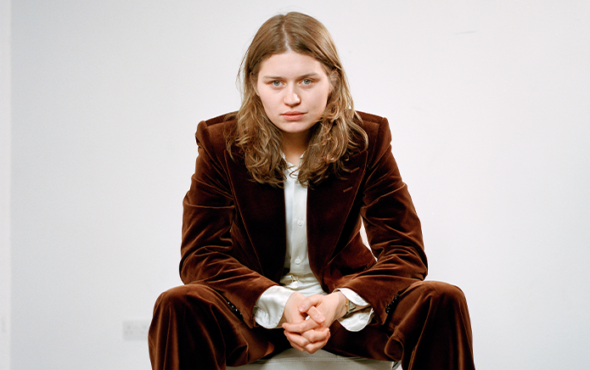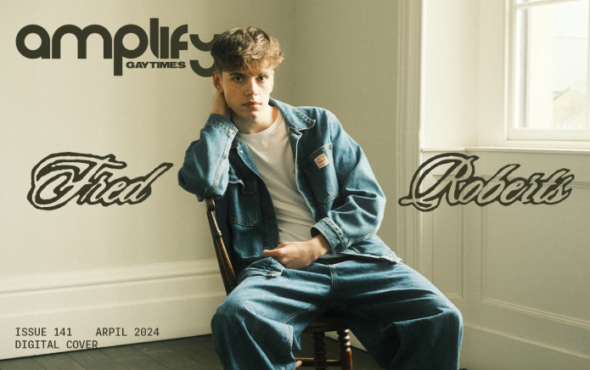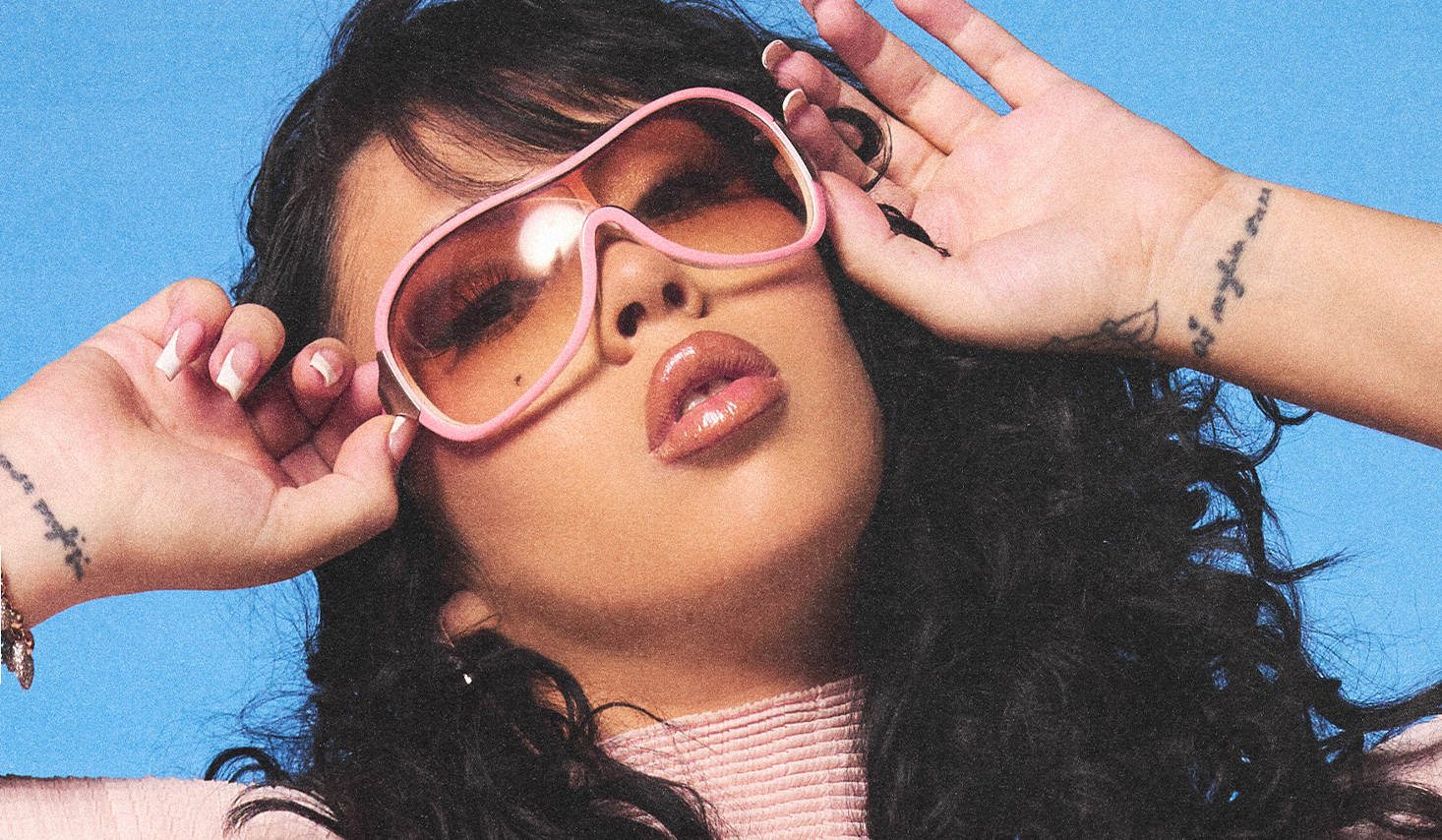
“Did you know that orchids are the national flower of Colombia?” Kali Uchis quietly enthuses over the phone from her room in Los Angeles. It’s 8am when she dials in, and though the Colombian-American artist is admittedly tired, she is getting ready for her album release party later that night. The album she’s celebrating is Orquídeas, technically her fourth studio full-length, but her second instalment in Spanish. Orchids, regarded in many cultures for being symbols of love, beauty and refinement, “represent femininity to me, and a celebration of my Latinidad,” she explains in a sleepy voice. Indeed, Orquídeas is a work that luxuriates in the variousness of her identity, where baddie schemes and unwavering self-worth sit comfortably with sorrow and vulnerability. On the cover art, Uchis is submerged in a milky, marbled body of liquid, swirls of pink, purple and blue orchids covering her naked body; a divine feminine who moves in elegant, earth-quaking strides.
“Since the beginning of my career, a lot of people were always like, ‘Oh, this is women empowerment music.’ But I don’t think that I’ve made music particularly with that in mind. I just create freely and whatever happens, happens,” she diplomatically offers when asked how she perceives her own artistry. “This is just me.” It’s unsurprising that her music is considered through a feminist lens. Since she arrived with her assured, soul-stirring 2015 debut EP, Por Vida, Uchis has embodied what straight literary men would call a femme fatale; a devilish, uncompromising woman that devours everything (and everyone) in her way. It’s a term that has long been levelled at supposedly cunning, hysterical divas – and, it should be noted, at Latinx women in particular – that are unflinchingly secure. “My music is about knowing your worth and not being afraid to ask for the things you want. It’s about princess treatment, being spoiled,” Uchis asserts. “I think that’s an important message for women and young girls to have. Never be afraid to have standards. Be proud and sit confidently in the fact that you know what you deserve.”
Uchis’ speaking voice is similar to her singing voice: low, restrained, slightly raspy and always alluring. It’s been the guiding light of her sultry, opulent blend of R&B, soul and pop. In 2012, Uchis broke through after uploading her gloriously DIY debut project, Drunken Babble, on cult mixtape site DatPiff, setting her tales of bodily autonomy, existential anxiety and trifling fuckboys to reggae, doo wop and hip-hop instrumentals. Soon after, she caught the attention of Snoop Dogg with the video for ‘What They Say’, a Bonnie and Clyde-imbued love song that turns into a wicked heist. They went on to collaborate on 2014 single On Edge, and Uchis seemed set on her path to stardom. Por Vida made good on those ambitions, enlisting an eclectic mix of producers like Tyler, the Creator and then-underground star Kaytranada to add to the hype.
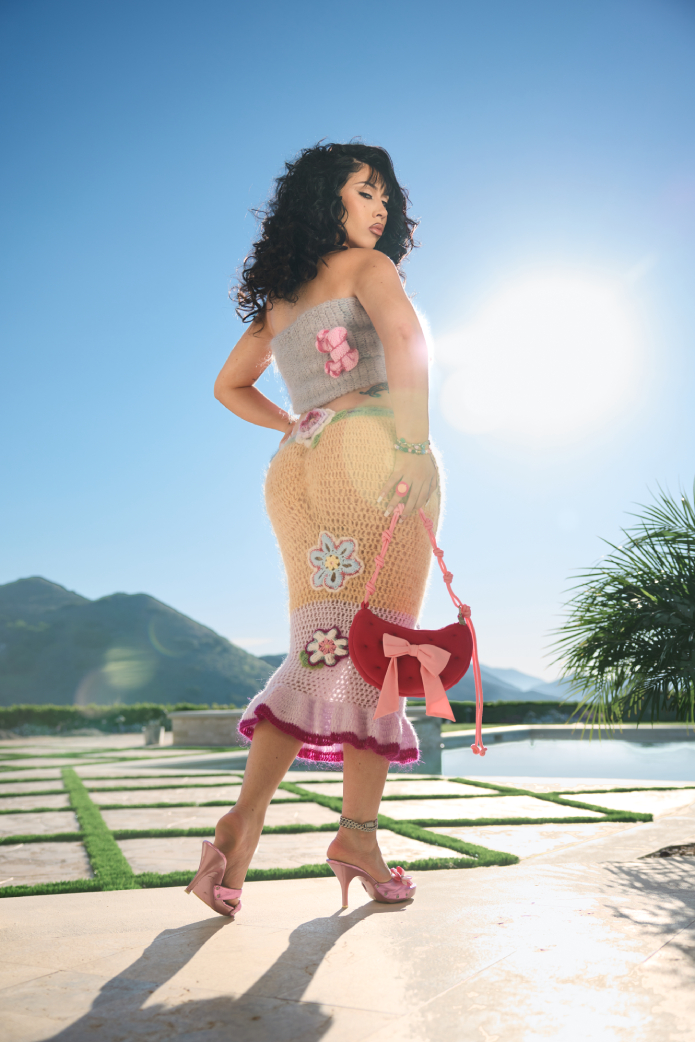
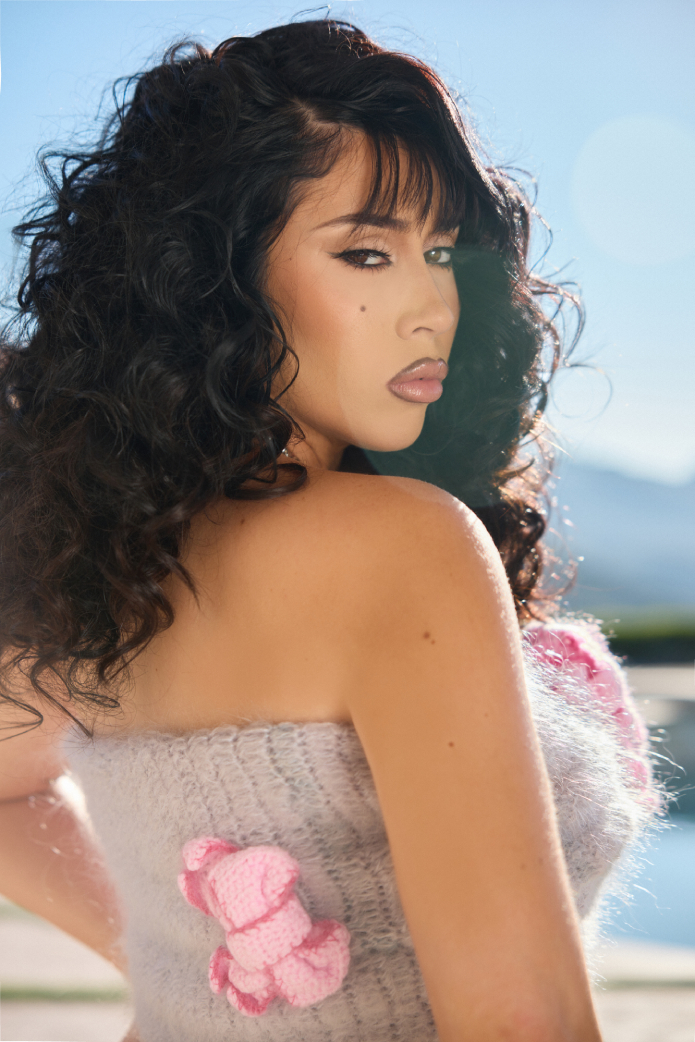
Four years on, 2018 brought her long-awaited (and unknowingly prescient) debut full-length, Isolation. Featuring collaborations with the likes of Jorja Smith and Steve Lacy, the album presents a dreamy, psychedelic world of her own, coloured with funk, R&B, pop and reggaeton sounds, where Uchis can indulge in all of her wildest fantasies. Here, Uchis can gleefully stuff a toxic ex into the trunk of her lowrider, in heels high as heaven, and set the whole thing alight. She can saunter around in her velvet robe and pray to God, or take us on a rhythmic journey through the streets of Risaralda.
Born Karly-Marina Loaiza in Alexandria, Virginia in the mid-90s, Uchis grew up between the East Coast state and her mountainous hometown of Pereira, Colombia. The youngest of five siblings, the 29-year-old singer has always felt artistic intuition. She played piano and saxophone in her school band, alongside writing poetry, screenplays and a budding interest in photography and film. At the age of 17, she was kicked out of her family home for breaking curfew, resulting in a period of her sleeping in her car – the first place she’d start writing original music on GarageBand. “Since I was little, I’ve always been very self-aware. I’ve never needed anyone,” she admits. “I grew up pretty tough-skinned.”
Instead of becoming hardened by this experience, Uchis leaned into the radical power of love – whether romantic, platonic or self-appointed. “I feel toxicity in music. I notice a lot of the subjects that do well in popular music today are subjects that speak very negatively of your partner or family dynamics. We’re shitting on each other all the time,” she says. “When I was about to drop Red Moon in Venus, I was like, ‘Oh, none of my music is about this. It’s about good, positive energy.’”
Red Moon in Venus is her 2023-released third LP, a lush and enveloping body of art that traces the intoxicating highs and real-world lows of romance. Introductory interlude ‘In My Garden’, soundtracked by birdsong and soft keys, sets the intention: “Hello, Can you hear me? I just wanted to tell you, in case you forgot: I love you,” – a message that feels as directed to her listener as it is to herself. “I really believe that love is the most powerful energy in the world; it’s a healing energy. Whether it be self-love or relationships, you’re on the right path if you’re doing it with your heart,” she says, voice supple as usual. “I definitely try to romanticise my life as much as I can. It’s important for me – it makes everyday worth living.”
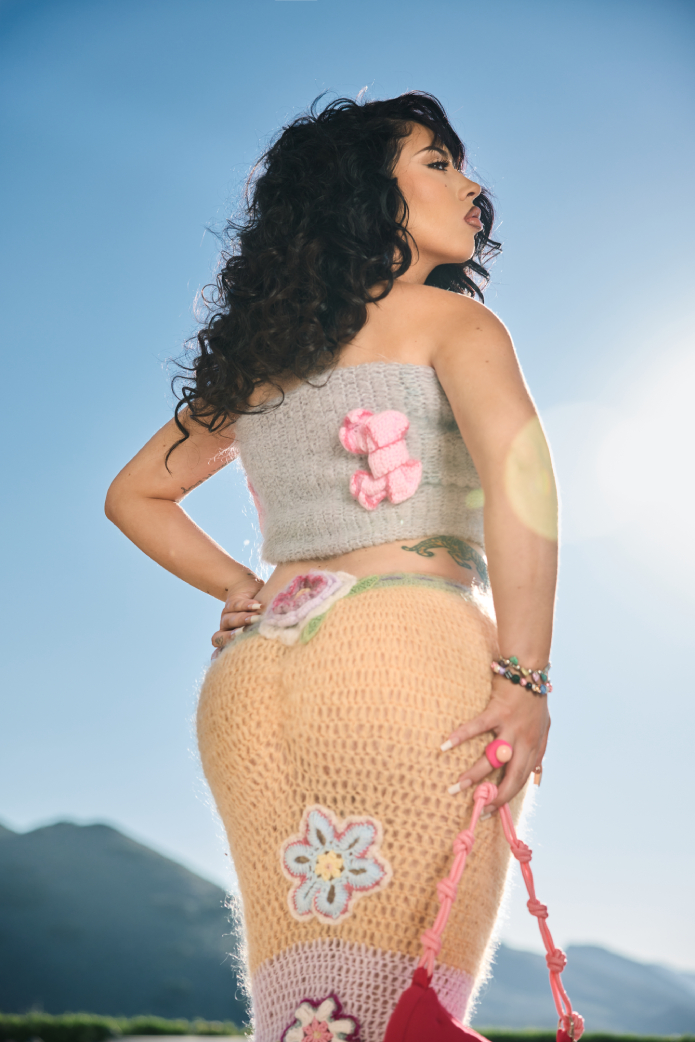
Orquídeas was written during the same sessions as Red Moon in Venus. Though she often wrangles subjects in Spanglish, the former is her second release exclusively written in Spanish (the first, 2020’s incendiary Sin Miedo (del Amor y Otros Demonios)). “I feel like I’m able to play with energy and more uptempo genres in Spanish rather than in English,” she explains of her choice to put music out in both languages. Orquídeas is, without a doubt, her most sonically diverse album to date. Opener ‘¿Cómo Así?’ hazily fades in before ascending into a Jersey club beat; ‘Me Pongo Loca’ is a loungey house love letter that reconciles bravado with tenderness; El Alfa and City Girls’ JT-featuring single ‘Muñekita’ is a rapid-fire perreo missive, complete with an early contender for lyric of the year: “Sana, sana, colita de rana, bitch.”
The record is bookended with ‘Dame Beso // Muévete’, a high-NRG merengue cut reminiscent of Los Hermanos Rosario’s legendary perico ripiao hit, ‘La Dueña del Swing’. “It honestly wasn’t a conscious thing. Sometimes as a writer, you get into a headspace, then later realise, ‘Oh wait, that kind of sounds like this,” she says, explaining that she grew up hearing the song at parties in Colombia. “Melodies are actually what are ingrained in us the longest. You can have a melody pop out that you heard as a baby and not realise that you carried it for so long.”
Uchis’ use of spiritual and religious imagery in her art has also been deeply ingrained by her upbringing and cultural surroundings. At times, these motifs are explicit (Sin Miedo’s album title directly translates to ‘Without Fear of Love and Other Demons’), others, they’re subtly embedded into lyrics, such as Orquídeas standout ‘Diosa’: “Dicen que tiene que ser que estás embrujao’/ Siempre a mi lado, dándole a su diosa ofrendas,” or, ‘they say you must be cursed, always by my side, giving offerings to your goddess’. Religious emblems are deeply entrenched in Latin American aesthetics, casually present in quotidian life; from the Virgen María prayer candles sold in bodegas to everyday idioms such as ‘que Dios te bendiga’. “You always see and hear this around my neighbourhood in Colombia,” she laughs. “But I wouldn’t call myself a religious person; I identify more as a spiritual person. The symbolism is timeless – these ideas of good and bad. I feel like it’s in the back of everybody’s mind, these two sectors of life.”
This duality wasn’t always an easy sell. After the success of Isolation and what seemed like a step towards super stardom, Uchis decided she wanted to release Sin Miedo. Her label didn’t share her vision. Even with Latin music’s proven commercial value, singing in Spanish in an Anglo landscape didn’t convince the suits – despite the US being home to the world’s biggest Latin diaspora population, where bicultural kids like her yearn to be seen for their duplexity. She put the music out anyway. “Isolation did, like, 3000 copies in its first week. I didn’t even know what first week sales were. They were not part of my M.O. or my process,” she posits. “When I create, I don’t think about how to market, sell, or how to become the best tool to capitalism that I can be. If my albums sold three copies, I would still be happy because it’s what I really wanted to do.”
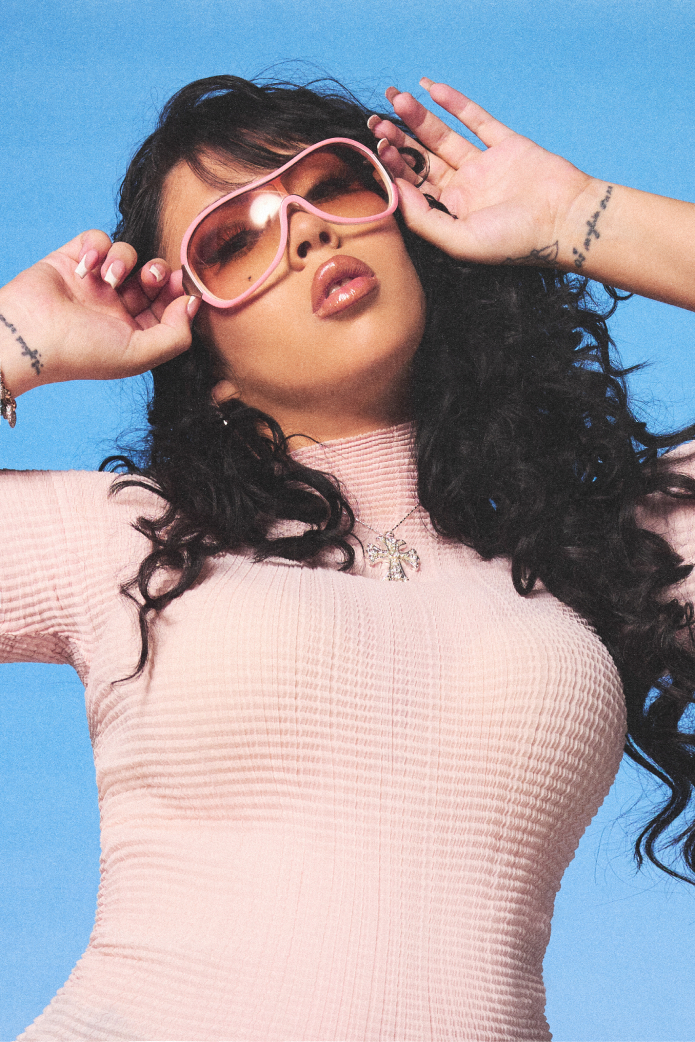
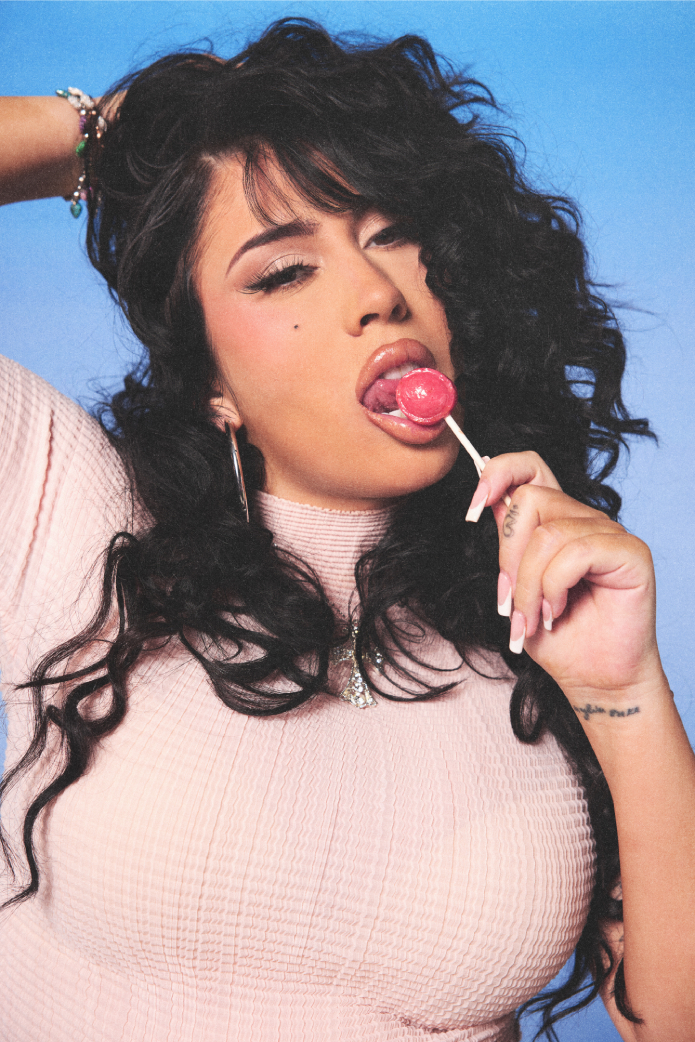
Uchis, of course, proved them wrong – and she knew she would. At the start of the visualiser for ‘Te Mata’, the second single off Orquídeas, she whispers: “Vea, pues, a mí me gusta que vean lo feliz que soy sin ellos,” translating to “I like them seeing how happy I am without them”, before launching into a deadly, melodramatic bolero that holds a gun up to all her doubters. “I feel like no one ever had faith in me and I never really had support,” she says. As a bisexual woman, it’s a feeling she’s used to – sitting in the spaces between, having to pull from her own strength: “I’ve always been the person who believed in me the most. I’ve never chased validation.”
Now, the relationships Uchis has – with herself, her music and her fans – exist on her own terms. She’s working with Latin America’s biggest stars, from fellow paisa Karol G (“that’s big sister vibes!”) and dembow legend El Alfa to corridos tumbados loverboy Peso Pluma. She’s prioritising pleasure – when didn’t she? – but intentionally slowing down, and just letting the future happen without intervention. “I just want to turn my phone off and connect more with the present,” she declares. “After this week of press, I will do that.”
An hour after our conversation, Uchis shares a video on her Instagram feed. Co-posted with longtime partner and collaborator Don Toliver, it’s an announcement of her pregnancy. The VHS-style montage features her, gloriously round bump on show, set to the backdrop of a mosaic of stain-glass orchids, offering her own interpretation of renewal and fertility. The image is cut with homespun footage of both her and Toliver, as young children at the beach, in swimming pools, dancing on undeniably 90s mustard carpets. This public display of love, of the personal peace and interiority she has fought so hard to protect, feels like a step into a more carefree arena. “I’m in a place where I feel hyper-aware. I’m not letting things affect me. They used to affect me, but I don’t necessarily care about a lot of the things that I used to care about,” she says, clear-eyed. It makes sense. Uchis is in a different, more grown headspace – matrescence – as she creates new life. But she’s also entered a new phase as an experimental pop star, where she is no longer expected to limit her ambition to succeed. She pauses and smiles: “Yeah, I’m in my mature era.”
En Español: Kali Uchis habla sobre crear música en español, ser bisexual en la industria musical y envia un emotivo mensaje a sus fans latinxs
Hay un sentido innato de alegría en la cultura latina. ¿Cómo se mantiene esta energía festiva que nos es inherente, al tiempo que se afrontan las luchas dentro de la cultura?
Creo que es muy importante aceptar la alegría en la vida. En general, me muevo por la vida tomando la decisión de intentar sacar lo mejor de cada día. E incluso cuando atraviesas dificultades y no estás en tus mejores momentos, es importante encontrar pequeñas alegrías en la vida, ser alegre, sonreír y hacer chistes. Eso es lo que nos ayuda a todos a salir adelante.
En el pasado, has dicho que mucha gente todavía no sabe quién eres en el espacio latino en comparación con el mercado en inglés. ¿Has sentido alguna vez que no encajas en ninguno de los dos espacios? ¿Luchas contra eso?
Claro. Pero creo que la sensación de no pertenecer está bien; creo que es posible aceptarla, sin necesitar realmente la validez de esa sensación de pertenencia. Tengo mucha paciencia. No me considero una persona basada en el ego que espera gustar a la gente o que piensa “me merezco esto o aquello” con respecto a mi carrera y mis logros. No espero que la gente sepa quién soy, y no lo saben. Este es mi segundo álbum en español, así que a veces tengo la sensación de estar haciendo el doble de trabajo, porque se trata de introducirse en mercados diferentes. Estos álbumes son mundos completamente propios.
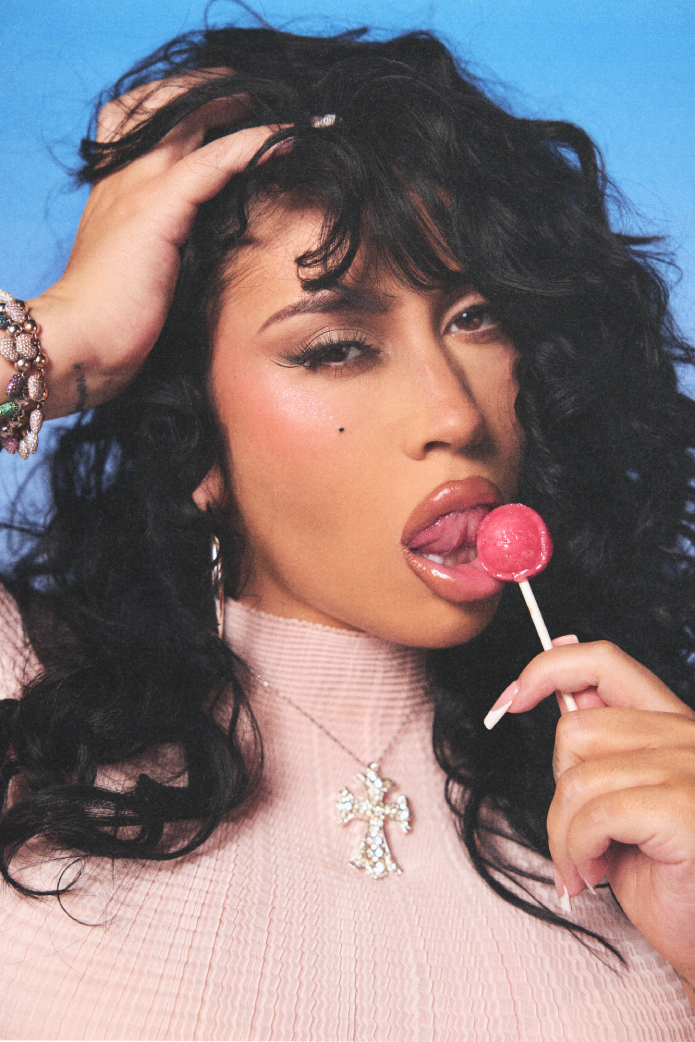
Como mujer bisexual, ¿se te impone alguna vez esa sensación de tener que demostrar tu valía dentro de diferentes grupos?
Yo no diría que me afecta. Estoy contenta con quién soy, lo he estado desde que era pequeña. Nunca he sentido la necesidad de ser aceptada por esta o aquella comunidad. Cuando entras en el mundo real ya tienes esa barrera, sabes que el mundo no es tan tolerante y agradable. Yo nunca lo necesité porque ya había crecido en condiciones más duras.
Escribir música en español es algo intrínseco a ti, una expresión material de tu identidad. ¿Cómo encontraste el valor para publicar estos álbumes a pesar de que, al principio, no tuviste el apoyo a tu alrededor?
Para mí no era nada nuevo ni diferente. No fue algo así como: “Oh, no sé cómo voy a tener la confianza para publicar esto”. La razón por la que empecé a hacer música en general fue porque es algo que siempre ha estado en mí. Escribo canciones desde que sé escribir; invento melodías desde que sé hablar. Es mi manera de sentirme más cerca de mí misma y de Dios. Es lo que me hace feliz. Pero nunca soñé con llegar al nivel en el que estoy hoy, sinceramente. Solo quería poder levantarme cada día y crear. En cuanto siento que voy en la dirección equivocada, doy un paso atrás y recuerdo por qué empecé a hacer esto.
¿El arte ha sido siempre un refugio o alguna vez ha supuesto también lucha?
La creatividad nunca ha sido una lucha – las luchas de mi vida son auténticas. Mi arte es lo que me resulta más fácil en la vida, algo que me da paz y felicidad. Así que cuando se trata de averiguar cómo vender o comercializar esas cosas, o hacer giras, todo eso añade estrés a la ecuación. No creo que nada en la vida merezca el estrés y los efectos que ocasiona en nuestros cuerpos, mentes y almas.
¿Qué significa para ti el amor verdadero?
El amor verdadero es inquebrantable, algo que nunca desaparece. Es la energía más fuerte que existe.
¿Qué mensaje quieres enviar a tus fans queer Latinxs?
Sé siempre tú mismx y nunca dejes que nadie ponga límites a lo que puedas llegar a ser, a lo que puedas hacer y a cómo decidas expresarte. Sed libres.

